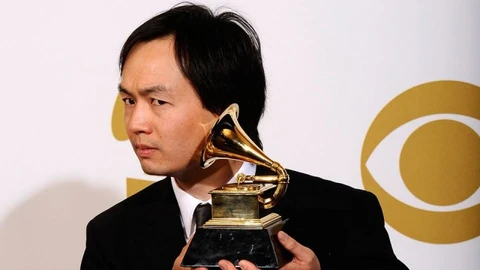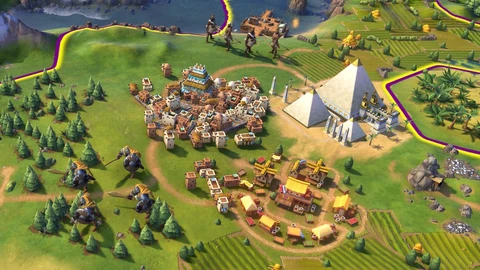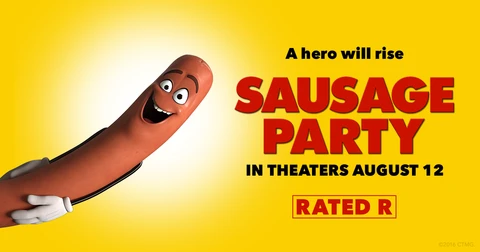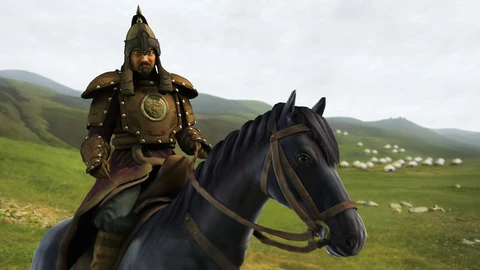Christopher Tin is a Grammy winning composer who took the path least traveled. In fact, it hadn’t been traveled at all.
In 2011, he scored two golden Grammy statues, most notably one for his Civilization IV theme “Baba Yetu”. The win was a breakthrough not just for Tin, but for the entire medium of videogames, as it was the Recording Academy’s first acknowledgement of interactive media in all its history. It remains a major stepping stone in gaming’s coalescence with popular culture.
Since his big win, Christopher has gone eclectic, working on everything from a follow-up theme for the Civilization series, to a contribution to comedian Seth Rogan’s movie “Sausage Party”. Lucid Sound caught up with Tin to discuss why he thinks the Academy has mostly overlooked video games since his victory in 2011, what people think of his theme to Civilization VI, and what his dream video game project would be. (Are you listening Firaxis?)
Lucid Sound: Your work on the Civilization series has made you a bit of a vanguard when it comes to video game music. I have to ask, do you play a lot of modern games, and if so, what is your opinion on how the average game utilizes music?
Christopher Tin: Thanks! I always find it amusing when people say that I’m on the vanguard of game music, as the number of games I’ve written for can be counted on one hand, and game music is just a tiny minority of what I write. But I’ll take it.
https://www.youtube.com/watch?v=IJiHDmyhE1A
I do play games; not as frequently as I’d like to, but I have played quite a few Playstation games. I’m of course a huge fan of Civilization, dating back to high school. I think a lot of games are incredibly sophisticated with their use of music - more so than films in a lot of ways. I find that a lot of the most interesting work in music for games happens in those games that don’t pretend to basically be interactive movies, so to speak: i.e., independent games, casual games, music-driven games (like Crypt of the NecroDancer).
You’ve done a few Reddit AMA’s, and in one particular answer you expressed your hope that gaming music would one day stand alongside other scores and arrangements from popular media, no extra category necessary. Well, six years on from your Grammy victory for Civilization IV and only “Journey” has joined your work in terms of any Grammy recognition. What’s going on?
I’m actually quite involved in the Recording Academy, so I can offer a pretty authoritative answer to this question. First off, winning or being nominated for a Grammy is extremely difficult and rare, and in any given year there are hundreds of submissions vying in the same category. So the odds are always stacked against you to begin with. Secondly, in most years, there are only a handful of video game soundtracks submitted to the Grammys. The Visual Media categories are almost entirely dominated by movie soundtracks. And it’s important to remember that the Grammys recognize recorded music releases - in other words, albums. It doesn’t matter how good the music in the game is - if there’s no soundtrack release, it’s not eligible for a soundtrack Grammy.

Also, since the Grammy is a record industry award, most voters in the Grammy organization are artists, songwriters, producers and others involved in the creation of music that stands on its own. And while many of them watch movies, not as many of them play games, or are aware of game music. So that’s a disadvantage right there.
And finally, I think there are much closer ties between the film business and record industry than between games and the record business. Every new movie that comes out seeks to tie a rock star or recording artist to its soundtrack, whether as a theme song or crammed into the credit scroll. Thus, you have a much cozier relationship with record industry types and the movies that they’re involved in.
Interesting. So with all that in mind, how much do you also feel gaming’s first contact with popular awards has to do with the fact that accomplished games like Civilization employ that coverall “World Music” genre tag? Do you worry at all that the threshold for mainstream recognition is that a game must be astutely “important” sounding in order to gain that crossover acceptance?
I’m assuming you’re talking about “Baba Yetu” from Civilization IV here. I’ve actually never connected its Grammy success with the world music angle, although there is an element of truth there. Baba Yetu won in a non-soundtrack category: “Best Instrumental Arrangement Accompanying Vocalists”. It’s a category that actually specifically awards the craft of composing and arranging, and is one that’s traditionally dominated by jazz arrangers. The year I was nominated I was up against such luminaries (and artists I admire) such as Herbie Hancock and Vince Mendoza.
But I think I pulled apart from the pack because, in a crowded field of jazz arrangements, mine may have stood out specifically for the world-music/African gospel angle. That, and the fact that I think Baba Yetu has a bit of an uplifting quality that just hits you on an emotional level, rather than purely on an intellectual and academic level.
And regarding the second part of your question, I think that “sounding important” is as good an avenue for a piece of music to gain mainstream acceptance as any other. I think that’s natural when it comes to award shows and such; We like to look for works that do more than just entertain, but perhaps those that shine a critical light on our culture and collective humanity.
How has the reaction been to “Sogno di Volare”, your theme for Civilization VI?
It’s been pretty good! I have to say, I was worried that people wouldn’t like it as much as Baba Yetu, and I think maybe there’s a 60/40 split of people who prefer Baba Yetu over Sogno di Volare… so I’ll take that any day. My personal feeling is that Baba Yetu has a lot more crossover potential as a standalone piece of music - however, I think Sogno di Volare fits the Civilization franchise a lot better. Which is what I was going for, really.

Was that intentional? Did you get a different prompt from the developers? How did that all work?
Right from the get go, everyone - Firaxis, my A&R guy at Warner/Chappell, my agent and my wife all said: don’t try to write another Baba Yetu. But I wanted to. I like to charge headlong into a challenge. But the turning point was really when I finally got some visuals to work with, including a .JPG of the menu screen and a rough animation of the opening movie. I tend to be very visually inspired, so seeing the menu screen with all its cartographic iconography really got my creative juices flowing.
Your IMDB shows some eclectic stuff; You’ve been involved in projects ranging from X-Men 2 to Seth Rogan’s “Sausage Party”. First of all… is that true? And secondly, can you articulate the differences between working on passive versus interactive media?
Yes, it’s absolutely true, and yes, I have a ridiculously eclectic career doing everything from game scores, to film work, to concert music, to collaborations with pop artists… I’m kind of all over the place. There are obviously schedule and format differences between all the different mediums, but the biggest difference I’ve noticed is in the culture of the people you’re working with… the differences in those personalities is what keeps me from getting bored.

Game developers are great, smart and passionate… and just totally chill. Film people too - incredibly passionate people who have taught me to appreciate narrative details in ways I never used to. As for cross-genre musical projects, working with, for example, EDM artists is a lot of fun too. They seem to be completely fascinated by everything I do with live instruments and an orchestra. Working with jazz artists is a blast and always a great learning experience for me. Classical artists are great as well - I’m constantly humbled in their presence.
Artistically speaking, you’re always trying to find a way to create something beautiful and unique and that totally fills the brief demanded by the project, no matter what you’re working on. Whether it’s for games, which require considerably more hand holding from the implementation side, and films, where you’re coping with the weight and expectations of the vast catalog of film music that came before you, there are unique challenges to each medium.
Okay, toss me out both a developer and a gaming franchise you would absolutely love to work with. What would you do?
It’s funny, but my dream gig would actually be to score an entire Civilization game from start to finish on my own, and not just write the title piece. It’s an incredible palette… basically, I would get to reinvent the entirety of music history in multiple cultures: Western, Asian, African, Middle Eastern. It would give me a chance to play with a huge swath of tone colors, scales, tonalities, and aesthetic principles, and find ways to evolve them over time. I could invent my own musical periods within musical traditions.

For example: sure, Mongolian music originated in the long song tradition and many of its rhythmic patterns came from the galloping of horse hooves, but what happens when Genghis Khan invents railroads? If I had all the time in the world and a modest budget, I’d invent my own alternate history of music for the entire world. It would be a total blast.
Let’s finish off with some quick, rapid fire questions: What’s your favorite game and movie soundtrack?
Too hard to pick, but I’ll just list the ones that impacted me the most when I first heard them: Katamari Damacy and The Empire Strikes Back.
A language you would love to write in?
That I haven’t already written a piece in? Perhaps Bengali. There are some beautiful writings by Rabindranath Tagore that I’ve been wanting to set to music for awhile. Also I’m on an Emily Dickinson kick right now, and love working with her poems. (Mercifully easy to set music to, being rigorously metrical and in English.)
Where do you keep your Grammys?
I keep them in their original shipping boxes, stacked in my closet. I live right by the ocean… the salt air would corrode the gold finishes if I left them out, unfortunately.
What’s Sid Meier really like?
Only met him once, but he was very sweet.
Lucid Sound would like to thank Christopher Tin for his time. Fans in Wales can catch him on a summer concert date on July 5th.
Alan is a feature writer who has contributed to Kotaku, Polygon, Nintendo Life and other gaming sites. He has a background in the psychology of creativity, professional Smash Bros. and over 20 years of gaming behind him. He gets yelled at daily for picking Hanzo in Overwatch.
Twitter: twitter.com/AlanWritesStuff